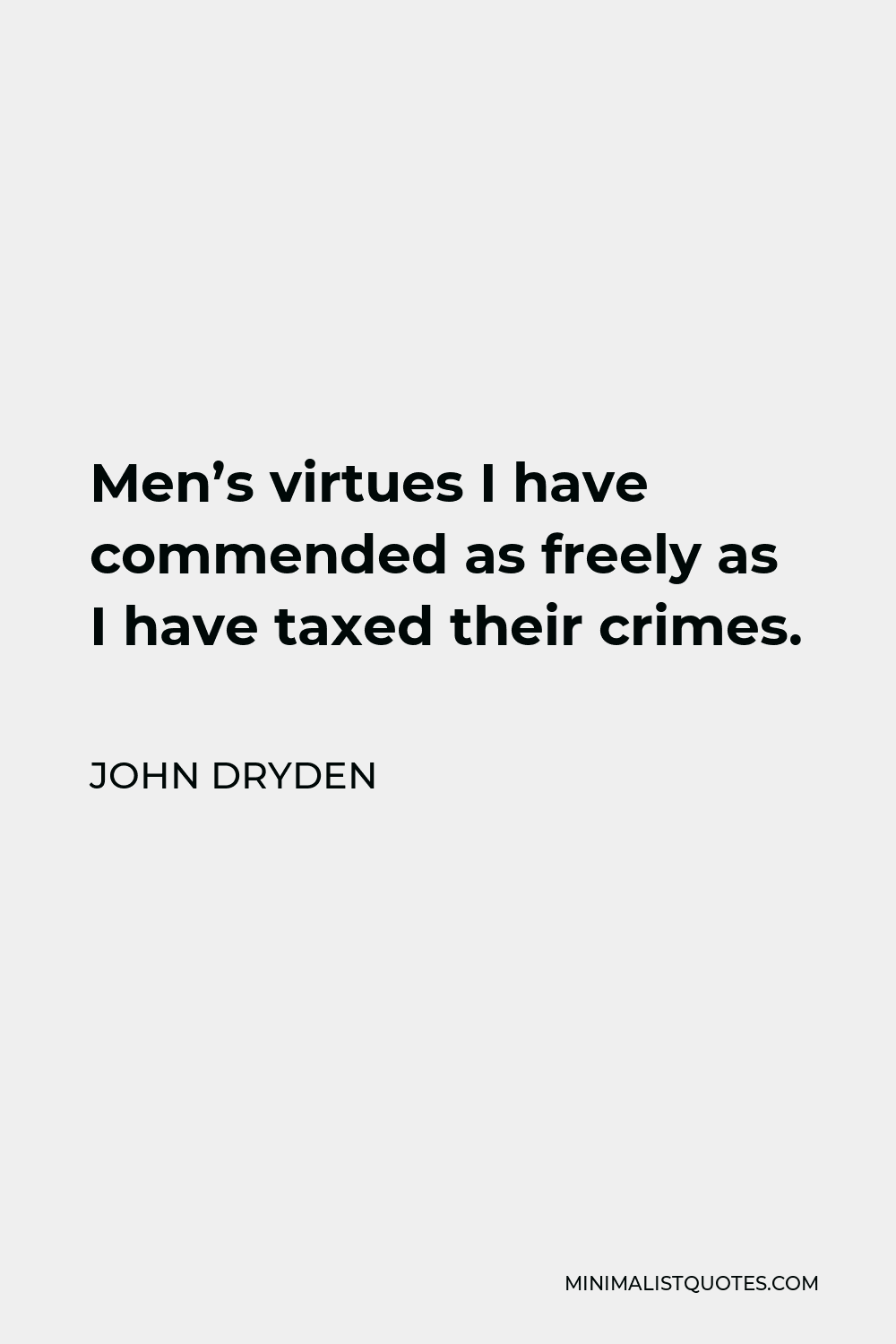The conscience of a people is their power.
JOHN DRYDENMen’s virtues I have commended as freely as I have taxed their crimes.
More John Dryden Quotes
-





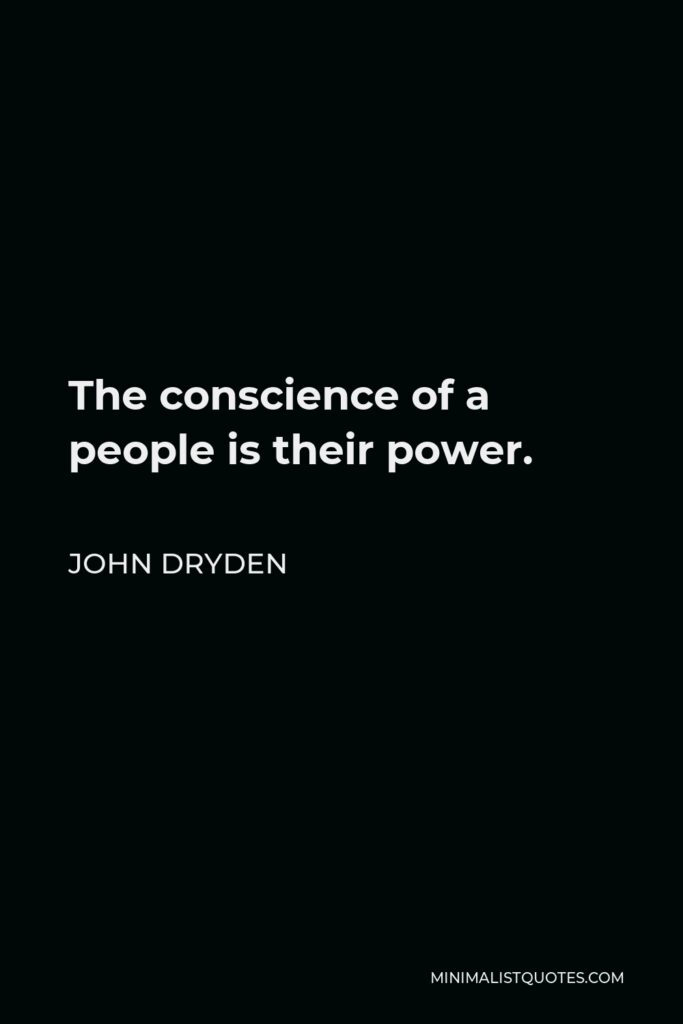

-





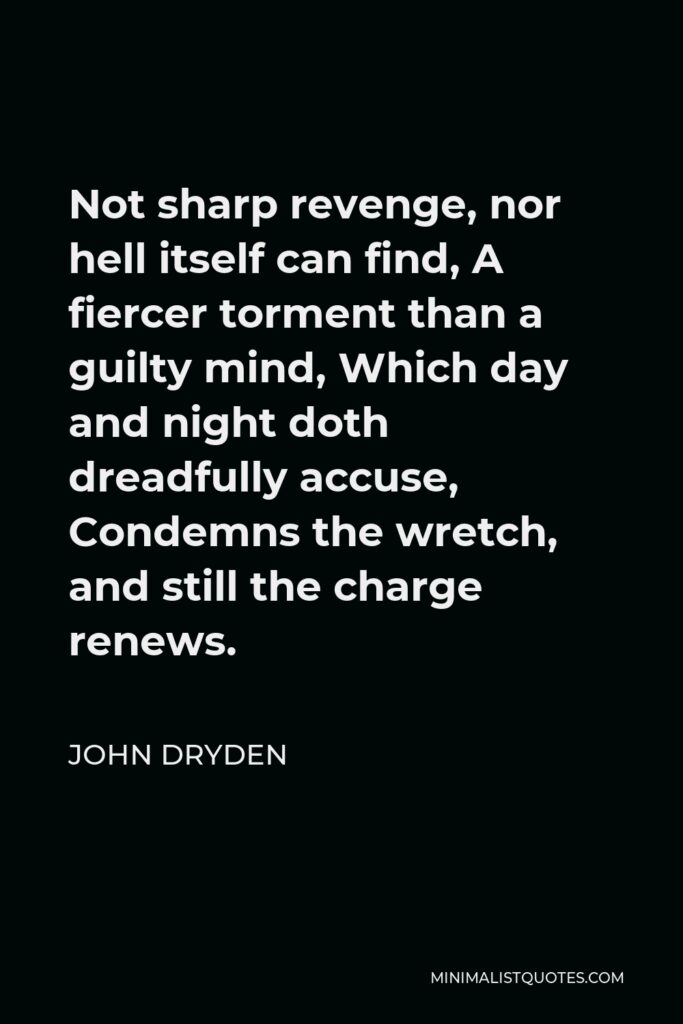

Not sharp revenge, nor hell itself can find, A fiercer torment than a guilty mind, Which day and night doth dreadfully accuse, Condemns the wretch, and still the charge renews.
JOHN DRYDEN -





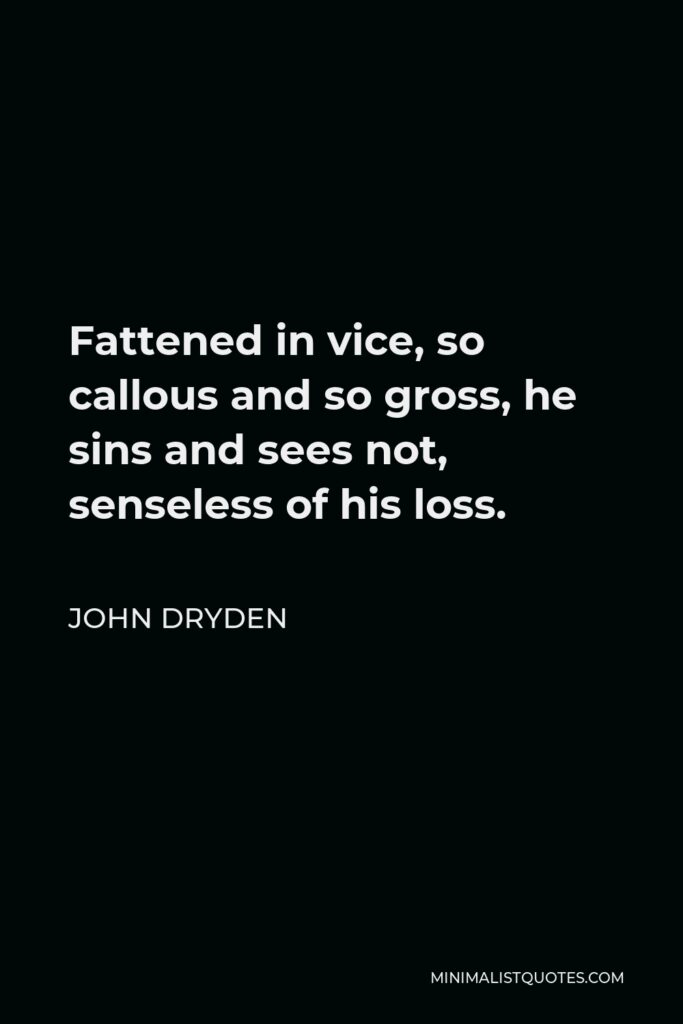

Fattened in vice, so callous and so gross, he sins and sees not, senseless of his loss.
JOHN DRYDEN -





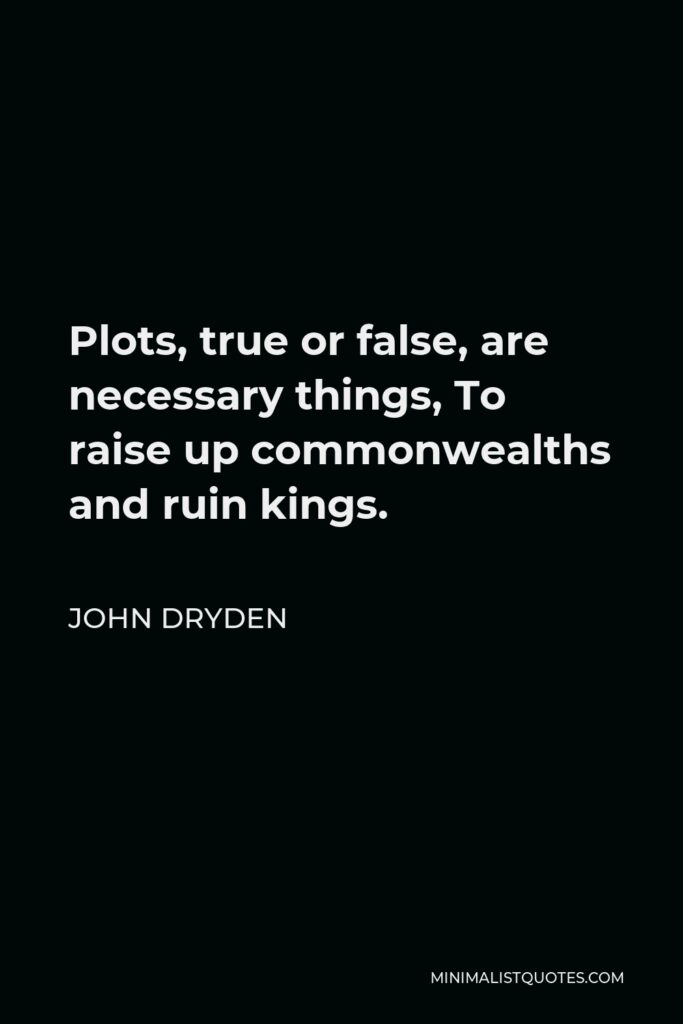

Plots, true or false, are necessary things, To raise up commonwealths and ruin kings.
JOHN DRYDEN -





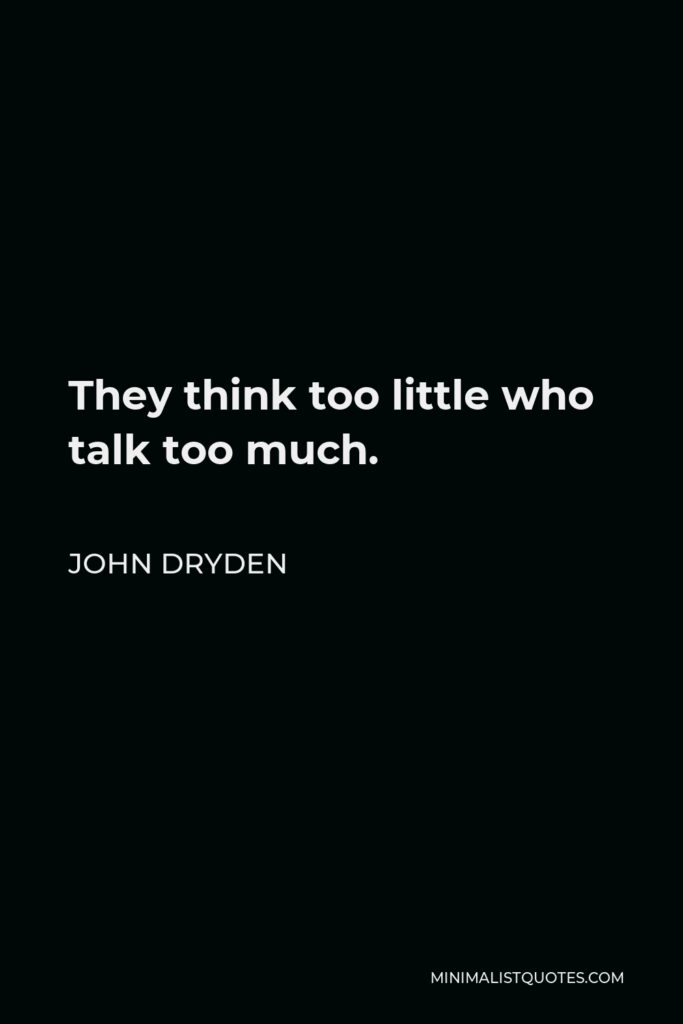

They think too little who talk too much.
JOHN DRYDEN -





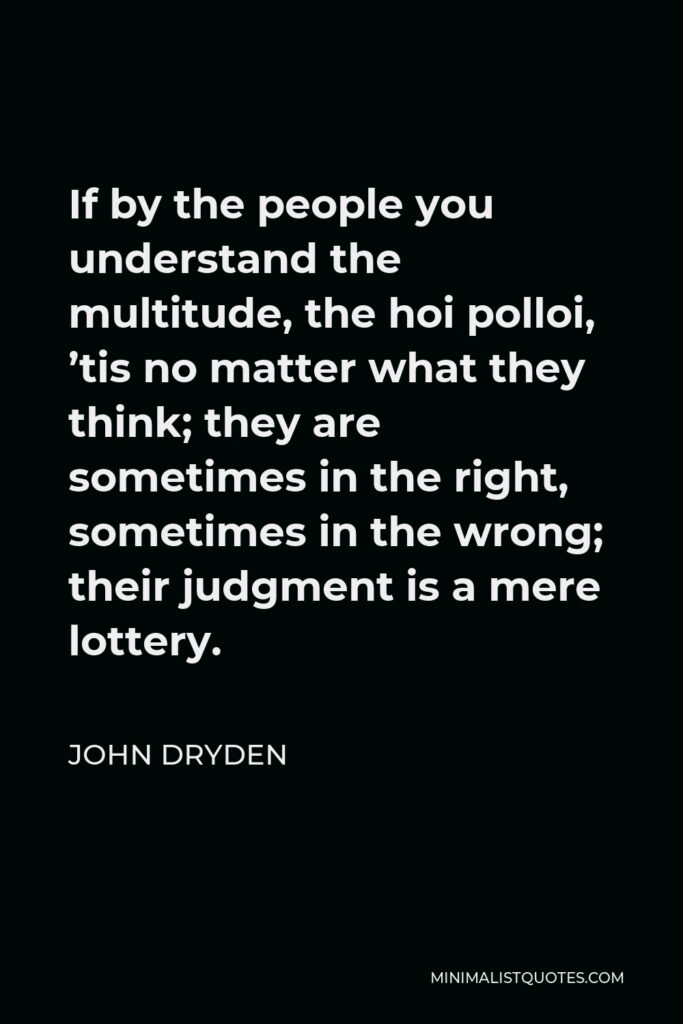

If by the people you understand the multitude, the hoi polloi, ’tis no matter what they think; they are sometimes in the right, sometimes in the wrong; their judgment is a mere lottery.
JOHN DRYDEN -





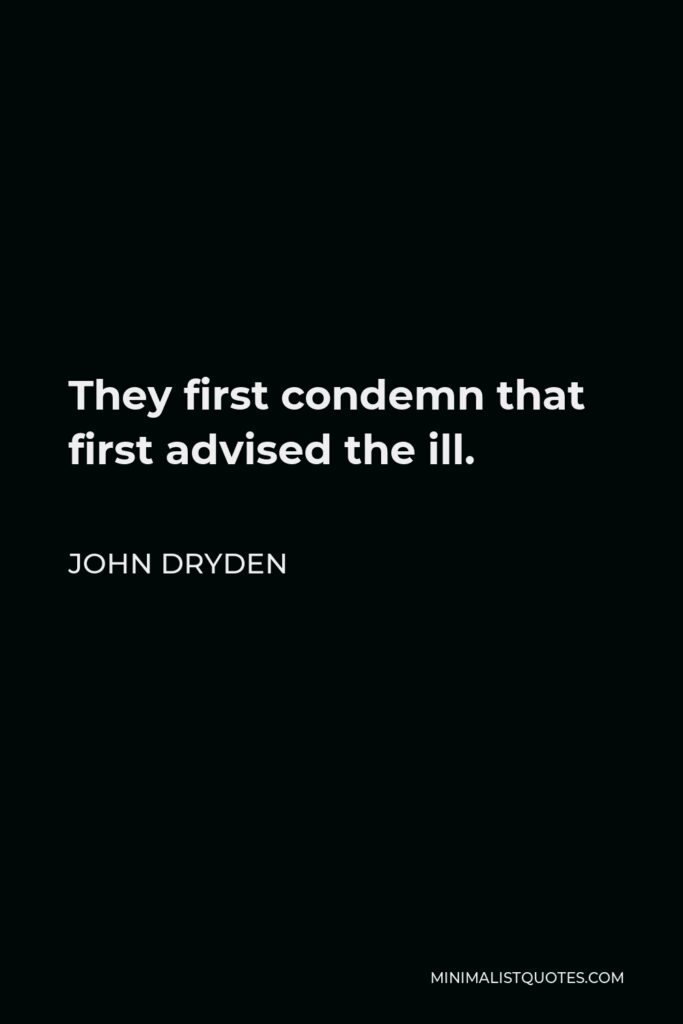

They first condemn that first advised the ill.
JOHN DRYDEN -





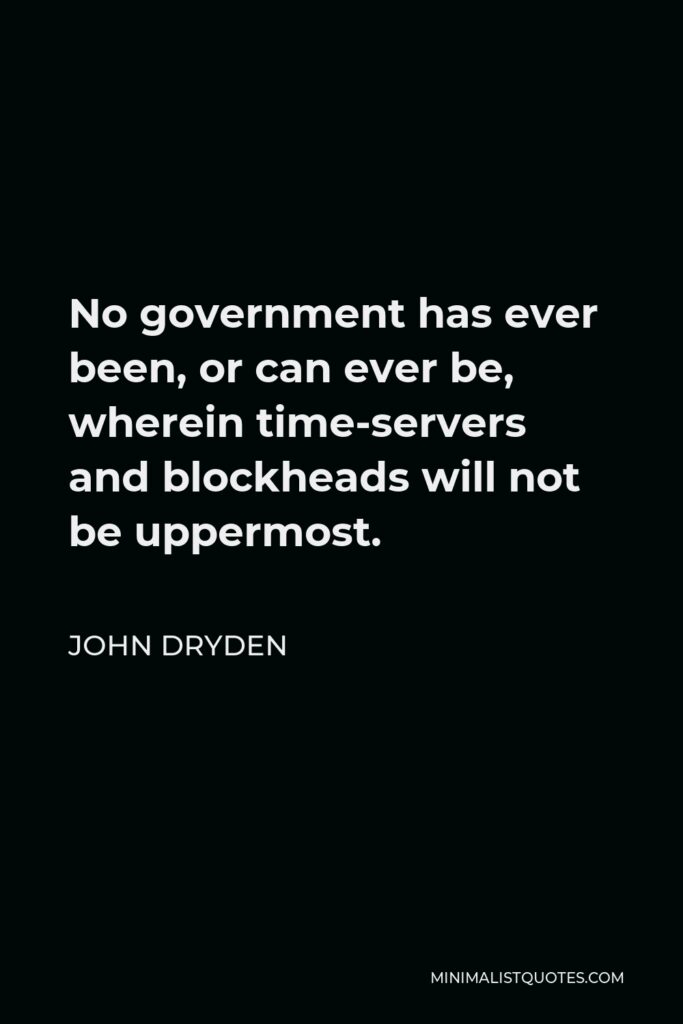

No government has ever been, or can ever be, wherein time-servers and blockheads will not be uppermost.
JOHN DRYDEN -





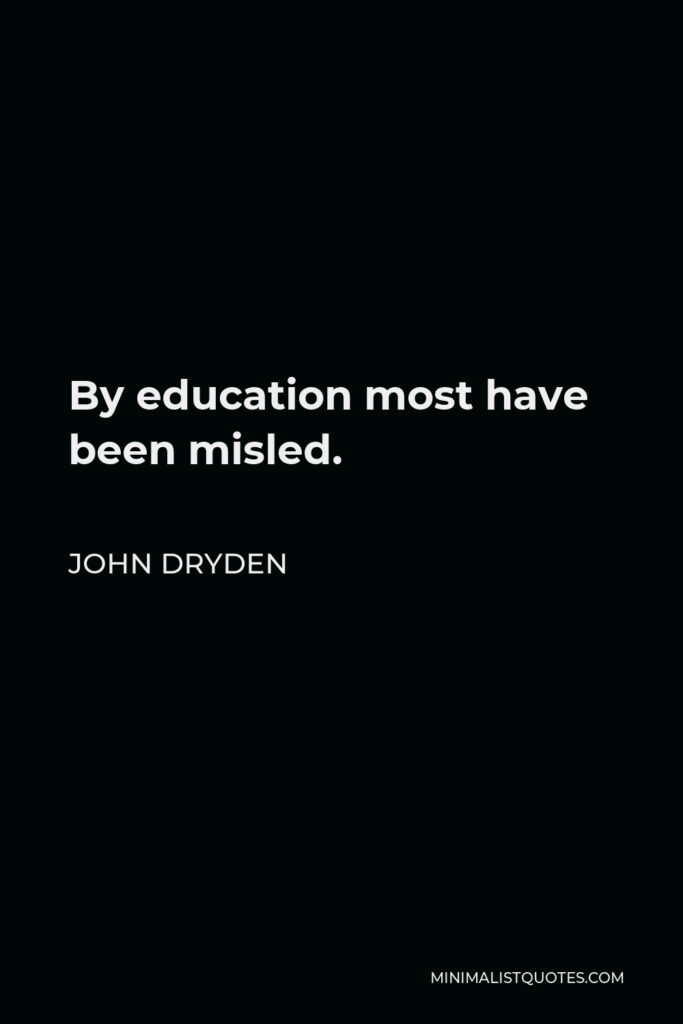

By education most have been misled.
JOHN DRYDEN -





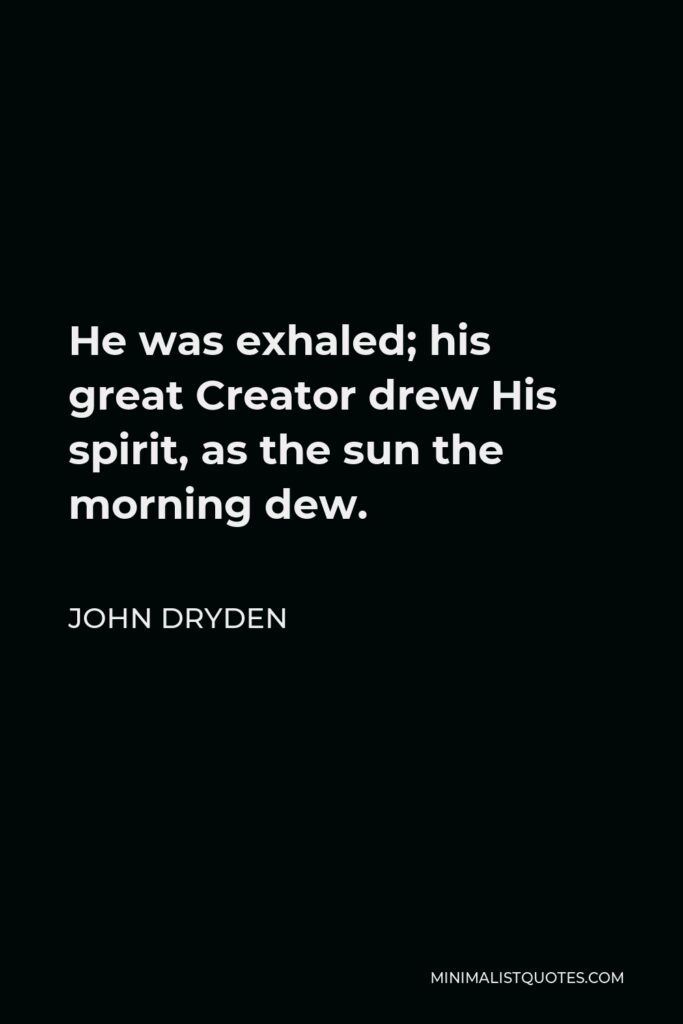

He was exhaled; his great Creator drew His spirit, as the sun the morning dew.
JOHN DRYDEN -





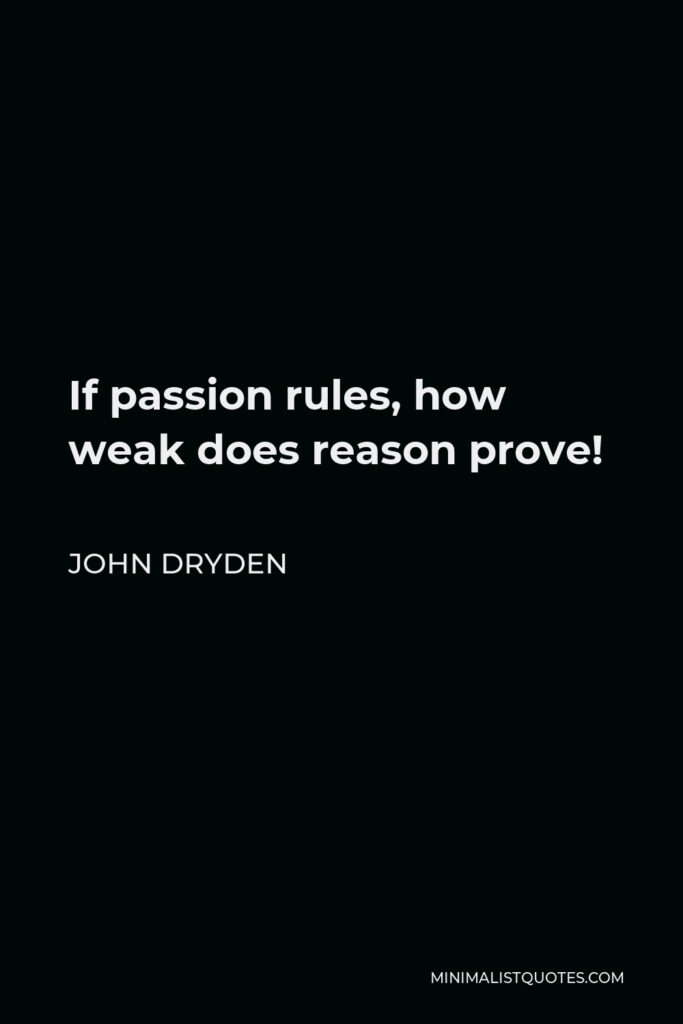

If passion rules, how weak does reason prove!
JOHN DRYDEN -





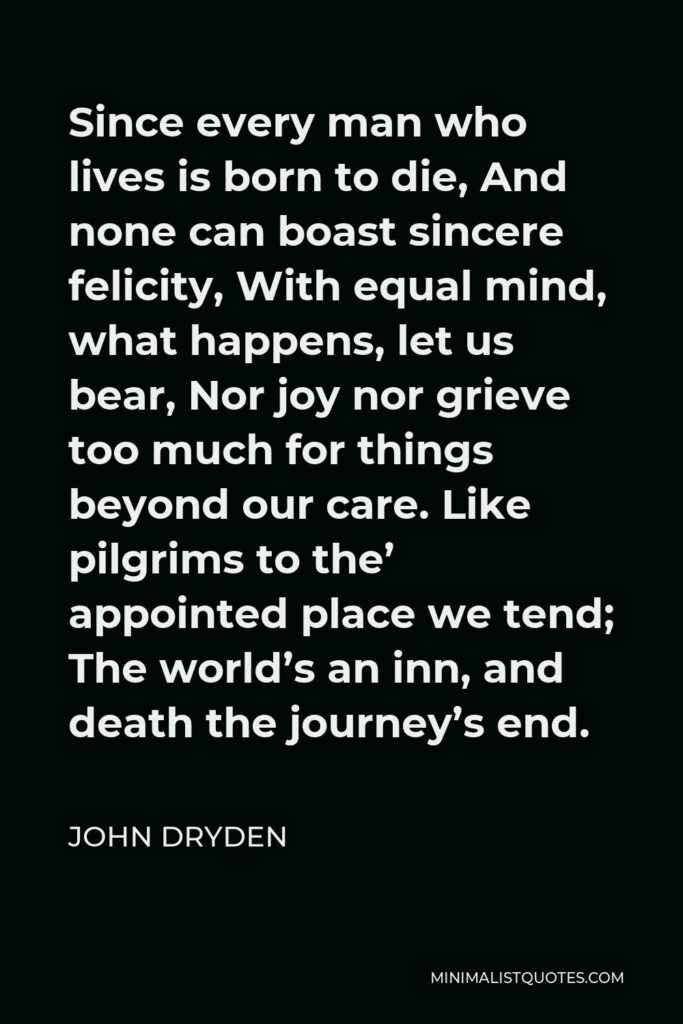

Since every man who lives is born to die, And none can boast sincere felicity, With equal mind, what happens, let us bear, Nor joy nor grieve too much for things beyond our care. Like pilgrims to the’ appointed place we tend; The world’s an inn, and death the journey’s end.
JOHN DRYDEN -







All empire is no more than power in trust.
JOHN DRYDEN -





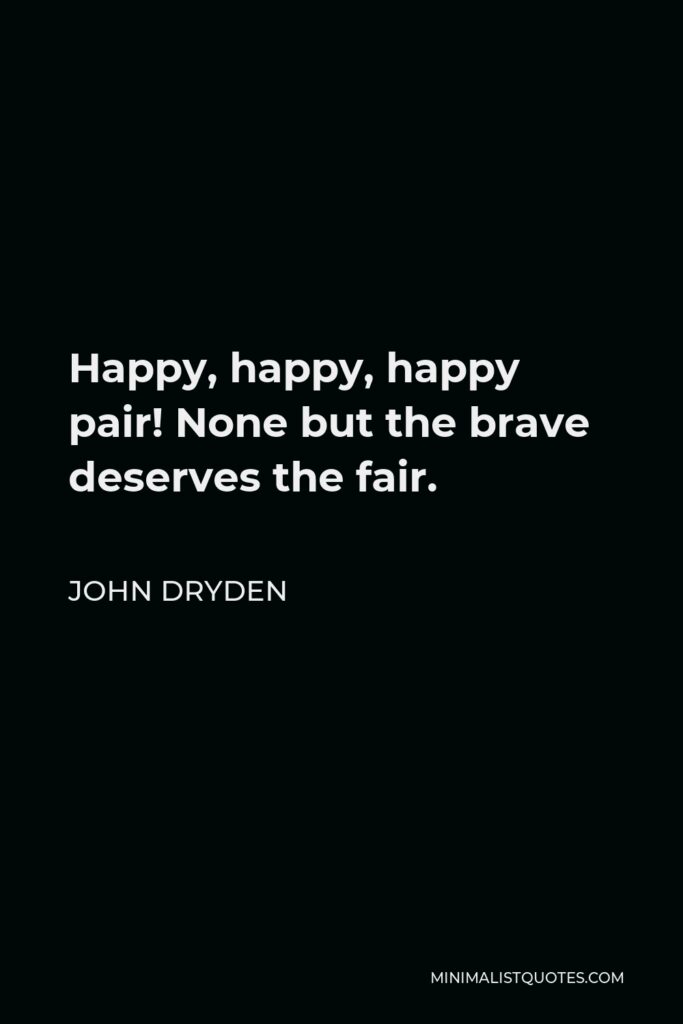

Happy, happy, happy pair! None but the brave deserves the fair.
JOHN DRYDEN -





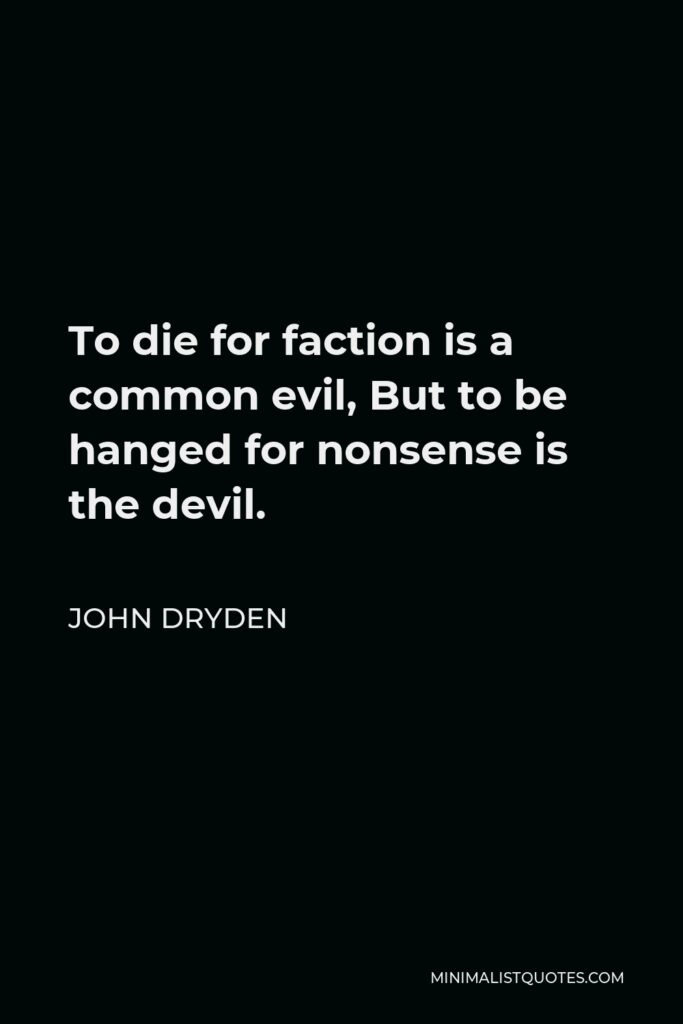

To die for faction is a common evil, But to be hanged for nonsense is the devil.
JOHN DRYDEN -





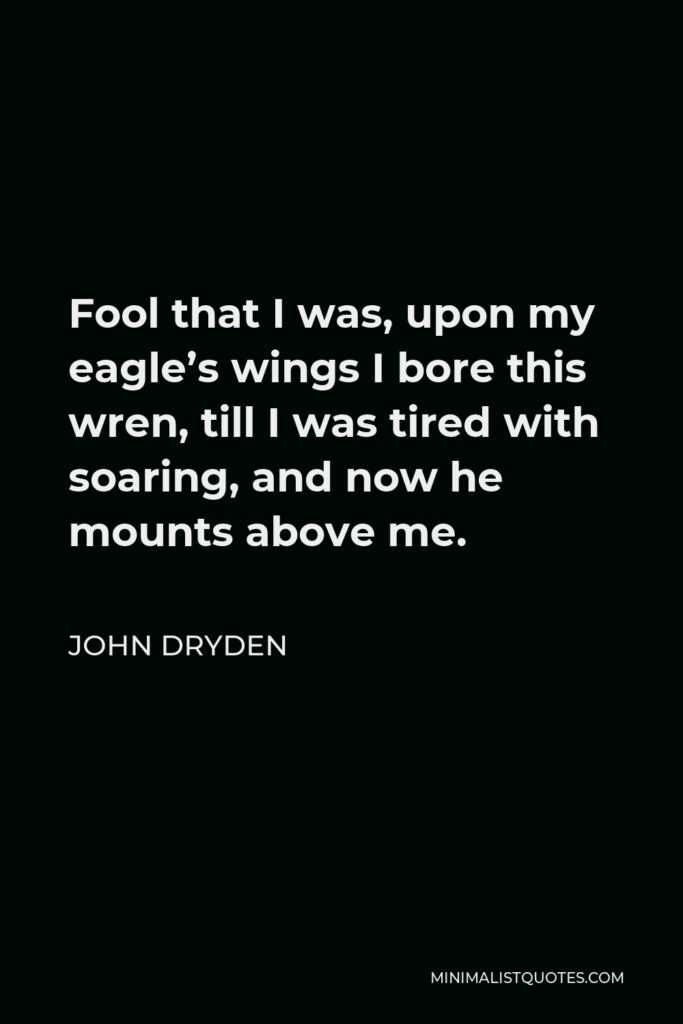

Fool that I was, upon my eagle’s wings I bore this wren, till I was tired with soaring, and now he mounts above me.
JOHN DRYDEN





